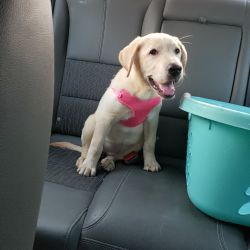Origins and Temperament
The majestic Leonberger has origins in the 19th century German town of Leonberg, developed by crossing the Newfoundland, the Saint Bernard, and the Great Pyrenees. This breed was designed to mimic the lion in the town crest, and its demeanor is as noble as its appearance suggests. Leonbergers are renowned for their gentle, affectionate nature, patience, and friendliness, making them excellent family pets. However, their sensitivity and attachment to their families mean that during travel, special consideration must be given to their emotional needs to prevent anxiety.
Size and Physical Needs
As one of the larger breeds, Leonbergers can weigh between 90 to 170 pounds with imposing heights that range from 25 to 31 inches at the shoulder. Their substantial size means they need ample space during transport and regular periods of exercise to maintain their physical well-being. Additionally, their thick double coats protect them from cold climates but also make them prone to overheating, necessitating temperature-controlled environments during travel.
Common Health Considerations
Leonbergers are prone to certain health issues, such as hip dysplasia, heart disorders, and bloat. It is crucial to have updated health documentation when traveling, which should include a vet check-up to ensure they're fit for transit. Proactive measures, such as restricting food before travel, can prevent bloat and ensure a safe and comfortable journey for your Leonberger.
















